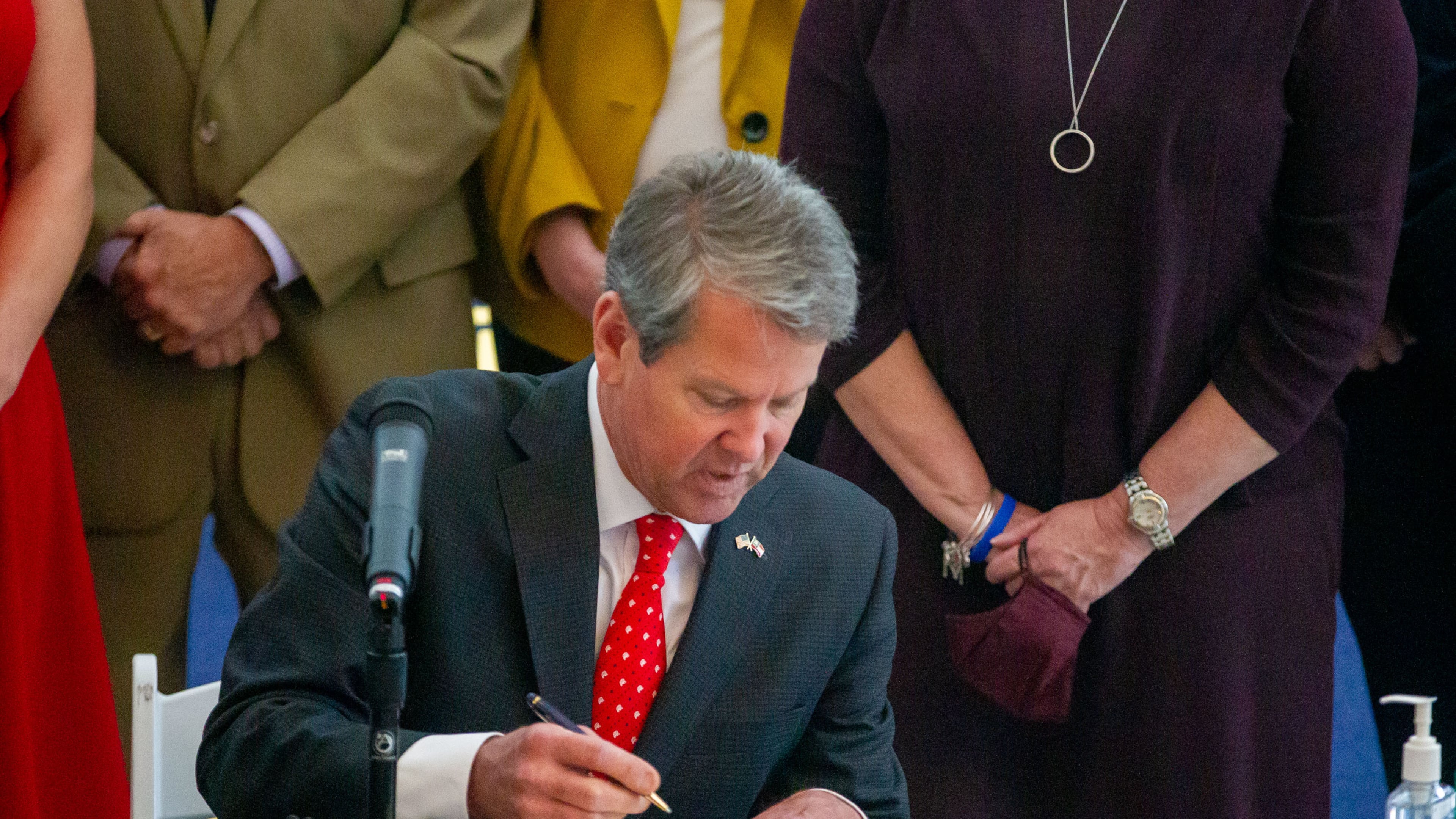Georgia governor signs bill giving state workers three weeks paid leave for new kids

Gov. Brian Kemp signed a measure Wednesday that for the first time grants a quarter-million state workers, including teachers, three weeks of paid parental leave.
The new law provides the benefits to mothers and fathers following the birth, adoption or foster placement of a child. Employees who have worked for the state for at least six months are eligible.
The legislation, House Bill 146, cruised through both chambers of the Legislature this spring with broad bipartisan support. It received only token opposition from eight House Democrats, including several who said they wished it provided additional time off for workers.
Kemp said the new law will help Georgia’s image as “the best state to live, work and raise a family.”
“I think it really speaks to who we are and where we are in the state of Georgia right now,” the Republican told reporters after a brief signing ceremony at the state Capitol. “We want to have a great workforce. We need good people in state government to keep our government running.”
The statute does not affect private companies, which have broad leeway to set their own leave policies.
While some businesses, particularly those in highly competitive fields such as tech and consulting, have increased their parental benefits to woo talent in recent years, many industries offer little to no paid time off.
The federal Family and Medical Leave Act requires employers to offer 12 weeks of unpaid leave, but many low-income and hourly workers cannot afford to take off such time. For those who can, many are left to cobble together vacation days, short-term disability and other leave to take time off to care for a new child.
Georgia House Speaker David Ralston, R-Blue Ridge, who was not at Wednesday’s event, said he hoped the new state law would “serve as an example for businesses looking to attract and retain the best employees.”
The issue saw a major boost among Republicans after then-President Donald Trump embraced the issue at the urging of his daughter. Ivanka Trump endorsed an earlier version of the Georgia bill in 2020.
Advocates are hoping to build momentum following Wednesday’s bill signing.
“This policy is a down payment for our state’s families, and we look forward to working to make future investments alongside Georgia’s businesses, families and legislators,” said Mindy Binderman, executive director of the Georgia Early Education Alliance for Ready Students, a nonprofit focused on boosting care and learning for children under 5.
Staff writer Greg Bluestein contributed to this article.
More Stories
The Latest



